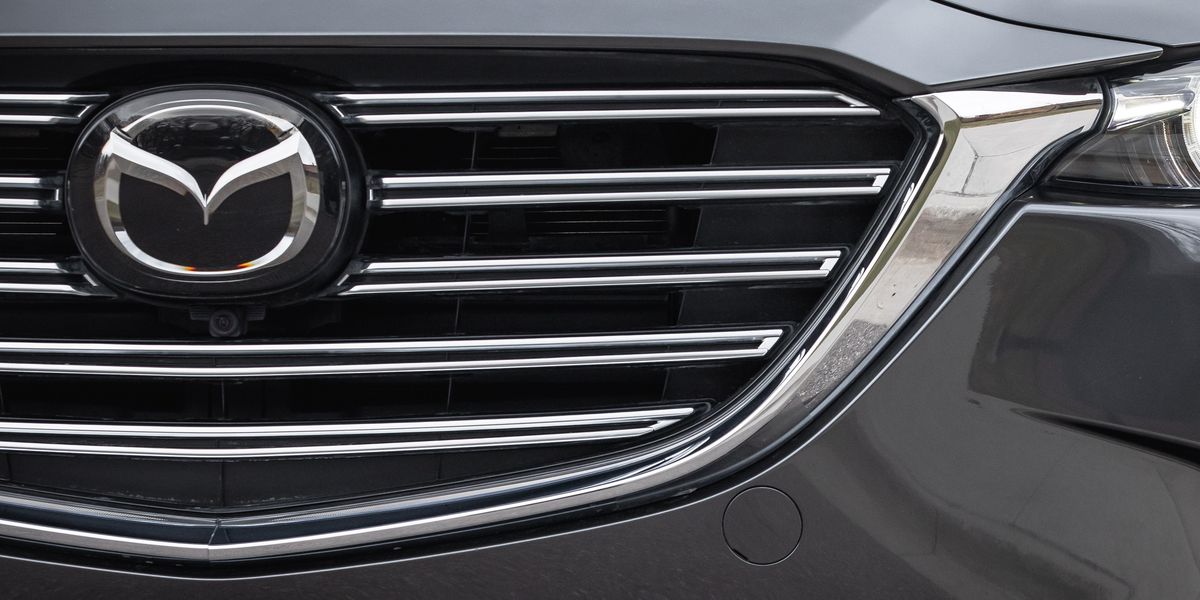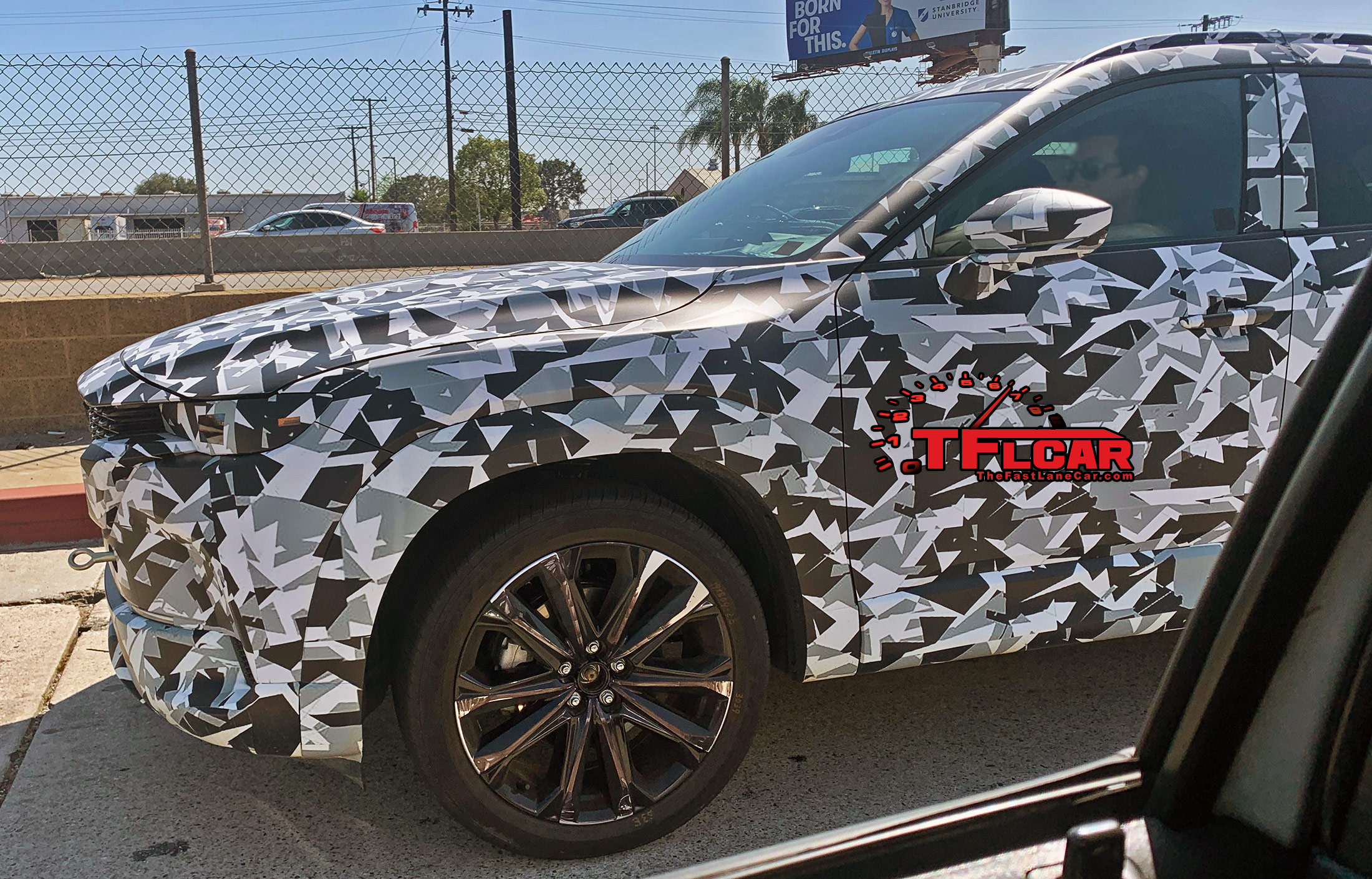You are using an out of date browser. It may not display this or other websites correctly.
You should upgrade or use an alternative browser.
You should upgrade or use an alternative browser.
CX-60 and CX-80 for Europe (CX-70 and CX-90 for the US)
- Thread starter santa
- Start date
Here's the english version:

 newsroom.mazda.com
newsroom.mazda.com

MAZDA NEWSROOM|Mazda to Expand SUV Lineup From 2022 Onwards|NEWS RELEASES
Everything you need to know about what's going on. Includes up to date news releases, production and sales results and archives, or sign up for your own RSS news feed.

Mazda Will Have Three New SUVs by 2023
The CX-50 will arrive next year with the CX-70 and CX-90 shortly after using Mazda's new longitudinal architecture with six-cylinder engines.
no mention of the CX-7 hybrid that was supposed to share the powerplant with Toyota Rav4..
I tought that would have been the CX-70 with the plug in hybrid model.
“Mazda's new longitudinal platform will debut two new models: the CX-70 and CX-90, both of which Mazda says will have widebody designs. The former is a two-row SUV and the latter a three row. They'll have the choice of either a turbocharged inline-six engine or a plug-in-hybrid powertrain that uses an inline-four gasoline engine”
“Mazda's new longitudinal platform will debut two new models: the CX-70 and CX-90, both of which Mazda says will have widebody designs. The former is a two-row SUV and the latter a three row. They'll have the choice of either a turbocharged inline-six engine or a plug-in-hybrid powertrain that uses an inline-four gasoline engine”
I tought that would have been the CX-70 with the plug in hybrid model.
“Mazda's new longitudinal platform will debut two new models: the CX-70 and CX-90, both of which Mazda says will have widebody designs. The former is a two-row SUV and the latter a three row. They'll have the choice of either a turbocharged inline-six engine or a plug-in-hybrid powertrain that uses an inline-four gasoline engine”
I had read it would be battery hybrid like the original hybrid engines. I would be open to that, but not plug in hybrid.
Like a rav 4 hybrid instead of a rav 4 prime ? In theory a plug in hybrid is the same tech as an old hybrid but with the added option that it can also be recharged with a wall plug, not sure why you would prefer an hybrid that can only be charged by the gas engine. Not judging, just trying to see why you would discount one over the other.
plug in hybrid is better. At this point every car that is hybrid should be a plug in. It just maximizes the batteries and gets better gas mileage. And the RAV 4 Prime is actually more powerful than the normal RAV4 hybrid.I had read it would be battery hybrid like the original hybrid engines. I would be open to that, but not plug in hybrid.
I don't want to upgrade and put a charging station at my house. Extra cost.Like a rav 4 hybrid instead of a rav 4 prime ? In theory a plug in hybrid is the same tech as an old hybrid but with the added option that it can also be recharged with a wall plug, not sure why you would prefer an hybrid that can only be charged by the gas engine. Not judging, just trying to see why you would discount one over the other.
Does the plug in hybrid car also charge the batteries as you drive and brake like the non-plug hybrid? If that is the case, why have both traditional hybrid and the plugin...why not just the plugin?
If the plugin does charge through regenerative braking, etc. like the non plugin hybrid, then I'm all for the plugin, get the $7500 federal incentive, and drive it in hybrid only mode or use the rebate to upgrade the electrical in the house. Not a bad deal.
Last edited:
- :
- '22 X3 M40i
I’m hoping the CX-70 isn’t too big. I was looking forward to a bargain X3 M40i from Mazda.
I don't want to upgrade and put a charging station at my house. Extra cost.
Does the plug in hybrid car also charge the batteries as you drive and brake like the non-plug hybrid? If that is the case, why have both traditional hybrid and the plugin...why not just the plugin?
If the plugin does charge through regenerative braking, etc. like the non plugin hybrid, then I'm all for the plugin, get the $7500 federal incentive, and drive it in hybrid only mode or use the rebate to upgrade the electrical in the house. Not a bad deal.
Exactly. The plug-in hybrid typically works exactly like regular hybrid. It will recharge with the engine once the battery is depleted. The difference is that when you drive an original hybrid, the cycle always goes - battery power, then engine power to charge the battery, then battery power, etc. With a plug-in hybrid, you have the advantage that you can plug in the car at night so every morning you start off with a fully charged battery, instead of half-charged or empty because the previous day the engine didn't run for long enough to fully charge the battery.
This is especially advantageous in shorter regular commute to go to work, where you can go many days without really needing the engine, because the daily drive isn't long enough to fully deplete the battery, and you can top it up at night.
And unlike fully electric car, you don't need to plug it in if you don't have the infrastructure or don't want to.
Thanks for opening my eyes. I'm not sure why anyone would by the hybrid over the plugin hybrid then, given the $7500 rebate. My state adds $750, for a total of $8250. That is huge! This car just went up to the top slot for me when we are ready to buy. The old Civic, she has lots of life in her still. 235k, 2010 LX....paid $17 for it. Oil changes at 7k with Mobil1 oil and filter. Transmission fluid change every 20-30k. Not a single spot of rust. Never been hit. Barely any rust under it. I got my money out of it, now its a pride thing. Probably the best car I have ever owned. I want to see how long we can go. Wife wants to hit 300k before getting a new car. That puts us at 3 years. Will be a shame to toss it.Exactly. The plug-in hybrid typically works exactly like regular hybrid. It will recharge with the engine once the battery is depleted. The difference is that when you drive an original hybrid, the cycle always goes - battery power, then engine power to charge the battery, then battery power, etc. With a plug-in hybrid, you have the advantage that you can plug in the car at night so every morning you start off with a fully charged battery, instead of half-charged or empty because the previous day the engine didn't run for long enough to fully charge the battery.
This is especially advantageous in shorter regular commute to go to work, where you can go many days without really needing the engine, because the daily drive isn't long enough to fully deplete the battery, and you can top it up at night.
And unlike fully electric car, you don't need to plug it in if you don't have the infrastructure or don't want to.
If the rebate is still there....the plugin hybrid is a viable option.
Also note you don’t need a charging station, just a wall plug. All the plug in hybrids come with cords that can be plugged into any wall socket.I don't want to upgrade and put a charging station at my house. Extra cost.
Does the plug in hybrid car also charge the batteries as you drive and brake like the non-plug hybrid? If that is the case, why have both traditional hybrid and the plugin...why not just the plugin?
If the plugin does charge through regenerative braking, etc. like the non plugin hybrid, then I'm all for the plugin, get the $7500 federal incentive, and drive it in hybrid only mode or use the rebate to upgrade the electrical in the house. Not a bad deal.
- :
- '22 X3 M40i
Are we actually looking at the CX-70 in these photos?


Could This Be The Mysterious Next-Gen Mazda CX-5/CX-50? New SUV Spotted In LA: Spied - TFLcar
Things have been pretty quiet with the Mazda CX-5 for a little while, but this prototype reveals some big changes could be afoot.
tflcar.com
No, that is the CX-50 since this will be assembled in the US. There was some initial confusion from the rumour sites thinking this was RWD model as they didn’t realize a new FWD model was coming for the US.Are we actually looking at the CX-70 in these photos?

Could This Be The Mysterious Next-Gen Mazda CX-5/CX-50? New SUV Spotted In LA: Spied - TFLcar
Things have been pretty quiet with the Mazda CX-5 for a little while, but this prototype reveals some big changes could be afoot.tflcar.com
The RWD CX-60 thru CX-90 will be manufactured in Japan so any leaks would come from Japan. My guess is that we will see the RWD CX-60 for other countries first before the US gets the CX-90.
- :
- '22 X3 M40i
The CX-50 is sharing platforms with the 3 and CX-30 though. This looks substantially larger than what that platform could handle.No, that is the CX-50 since this will be assembled in the US. There was some initial confusion from the rumour sites thinking this was RWD model as they didn’t realize a new FWD model was coming for the US.
The RWD CX-60 thru CX-90 will be manufactured in Japan so any leaks would come from Japan. My guess is that we will see the RWD CX-60 for other countries first before the US gets the CX-90.
This looks to be slightly larger than the CX-5 and the platform from Mazda3 and CX-30 should be able to support it.The CX-50 is sharing platforms with the 3 and CX-30 though. This looks substantially larger than what that platform could handle.
I do have to admit the straight 6 in-line is very alluring ..one doesn’t have to look far for the info on refinement and limited NVH
Isn’t the I-6 consider the most balanced architecture for mass produced engines?
Isn’t the I-6 consider the most balanced architecture for mass produced engines?
- :
- '22 X3 M40i
Yep, short of a V-12.I do have to admit the straight 6 in-line is very alluring ..one doesn’t have to look far for the info on refinement and limited NVH
Isn’t the I-6 consider the most balanced architecture for mass produced engines?
- :
- '22 X3 M40i
If you’re right, then the CX-70 could be a little beefy. I’m anxious to see what the November reveal brings.This looks to be slightly larger than the CX-5 and the platform from Mazda3 and CX-30 should be able to support it.
New Posts and Comments
- Replies
- 10K
- Views
- 3M
- Replies
- 73
- Views
- 25K
- Replies
- 16
- Views
- 3K
